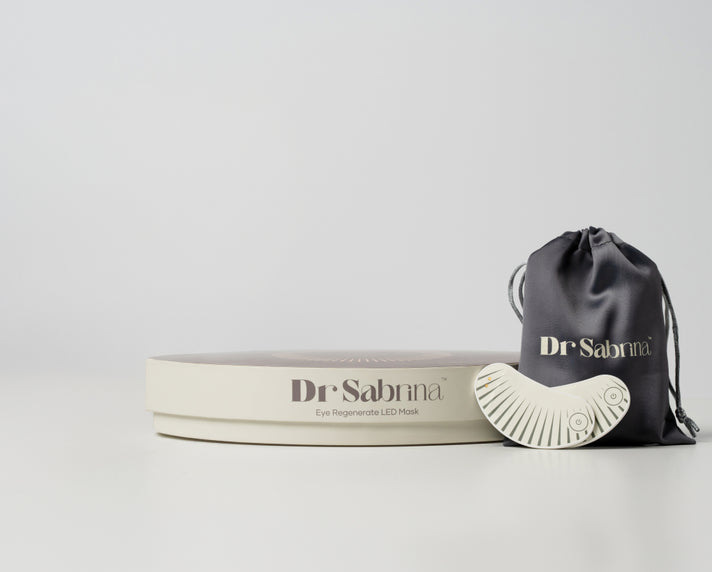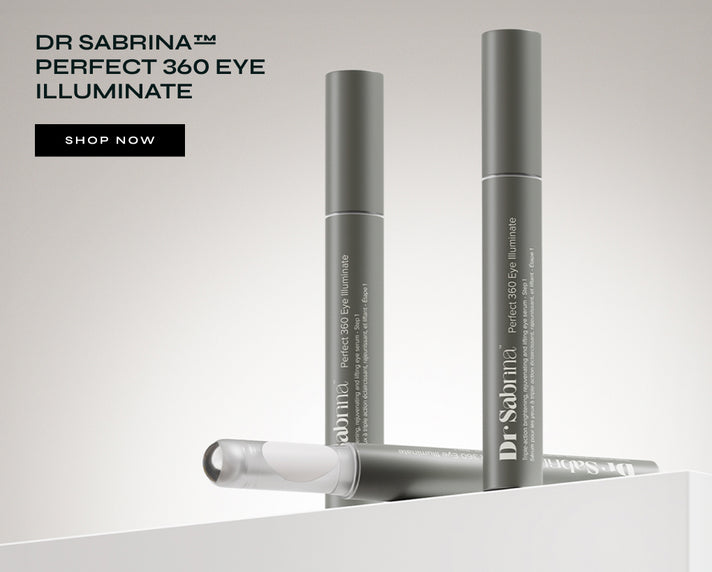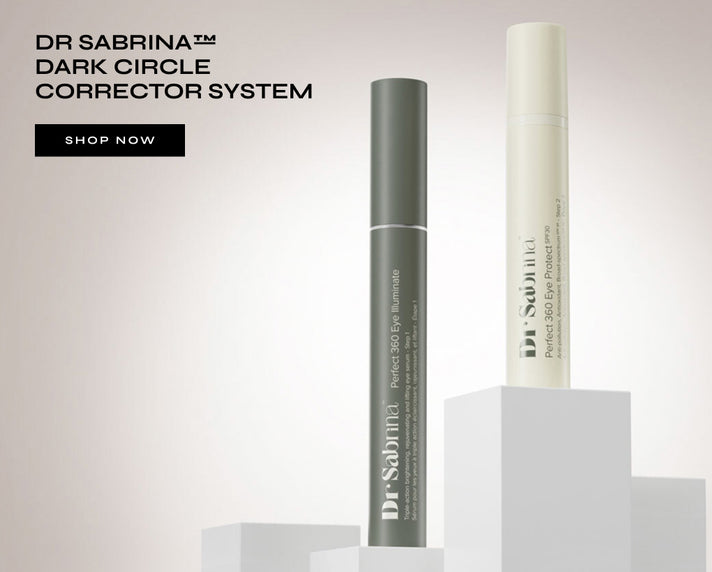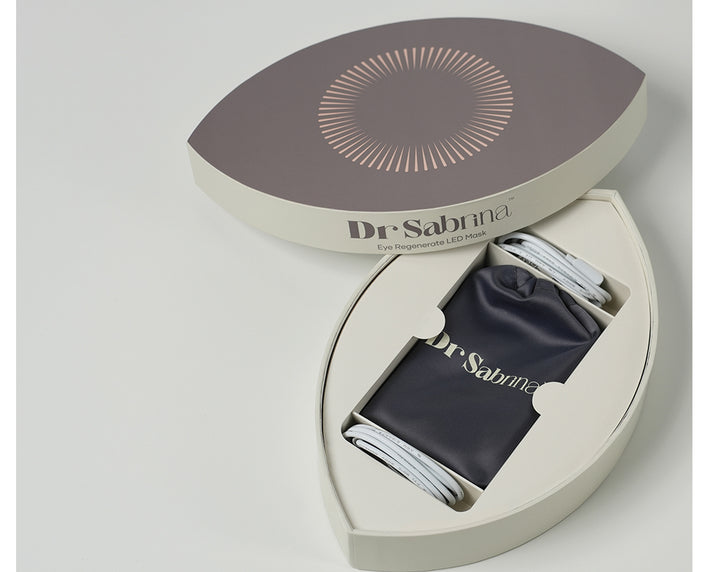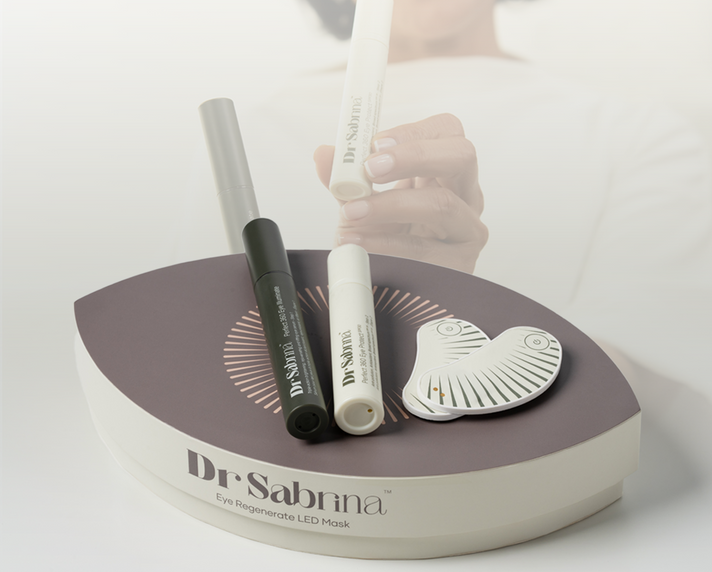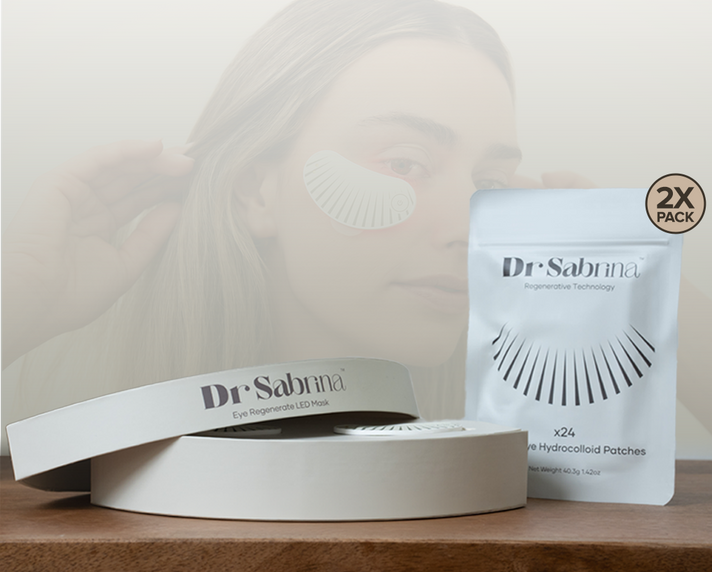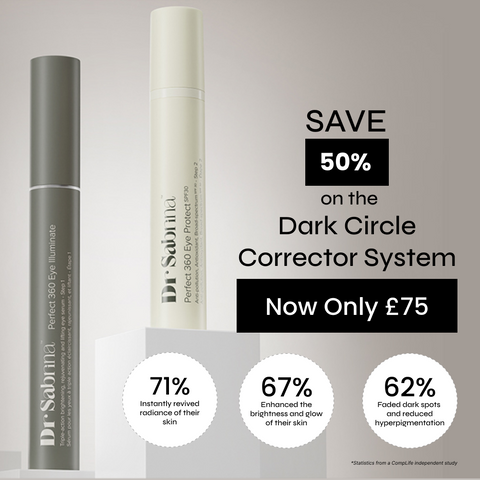Dark Circle
Dark Circles and Eye Bags: Why you have them, what they are, and how we can treat it
It's no secret that when the clocks go back, many of us start to feel more tired and low than we have previously in the year. Starting and ending our days in less daylight can certainly impact on productivity and mood – as well as our eyes!
The eyes tell a huge story behind each person, and feeling tired is often reflected by dark circles and eye bags. Following the COVID-19 lockdown there was, and still remains, a huge rise in business owners using platforms like Zoom to communicate which only highlight those tired eyes too.
But there’s no one-size-fits-all when it comes to dark circles. So how do you know what type you have, what’s causing it and how to improve their appearance? First, let’s look at what causes dark circles in the first place.
Lifestyle
The way you choose to live your life plans a huge part in how this is reflected in your appearance. Lifestyle choices such as smoking, fatigue, make-up usage, smart devices and competitive eye strain can all increase dark circles under the eyes.
Environment
With modern day lifestyles and technology, the earth we live on is certainly not as clean as it once was. Daily pollution and sun exposure play their part in dark circles too.
Genetics
Unfortunately, some people will always be more susceptive to dark circles than others. Your ethnicity, bone structure, and hyperpigmentation can all impact on the severity of dark circles you will experience. Those on the Fitzpatrick scale of Type IV or above (the darker skin types) are certainly more likely to experience dark circles than those in Type I or Type II, for example.
Medical Conditions
Allergies, Anemia, Water retention, Melasma and Hormone balances all play a part in the appearance of your eyes too. For example, a higher level of Cortisol will likely impact your ability to sleep and therefore increase dark circles around the eyes.
Ageing
Getting older has many side-effects that patients do not appreciate. Yet another one is the impact on your eyes. As we grow older, our eyes can begin to hollow and the skin become thinner, leading to those ageing, tired looking eyes we hope to avoid.
Habits
Even if you managed to avoid all the genetics, medical conditions and environmental factors that can cause dark circles, your general day-to-day habits are likely to catch-up with you. A lack of sleep, excessive caffeine and alcohol, dehydration and excessive salt intake can contribute too.
So now that we understand what causes dark circles, let’s have a look at the different types in order for you to explore relevant treatment plans.
Your treatment options for each type of dark circle are as follows…
Vascular skin hyperpigmentation -
Melanin, Vascular and mixed skin pigmentation –this is where my Dark circle corrector system works a treat. Additional treatments include micro-needling with brightening meso cocktails, PRP, Carboxytherapy & LASER
Fluid bags – Endolift, Morpheus8, Sofwave or lower lid surgery
Under eye hollows from structural volume loss – Hyaluronic acid fillers or fat transfer
Loose excess or thin skin – LASER, Tixel, Morpheus8, or Polynucleotides for skin regeneration
Eye bags causing a shadow – Dermal filler or Surgery
Whilst the elements that can cause our dark circles are sometimes inevitable or hard to avoid, the outcome is not. We have a range of non-surgical and surgical treatment options to give your eyes an appearance that you are confident and happy with.
Book a consultation with us today to find out if you could be a candidate for one of these recommended treatments.



